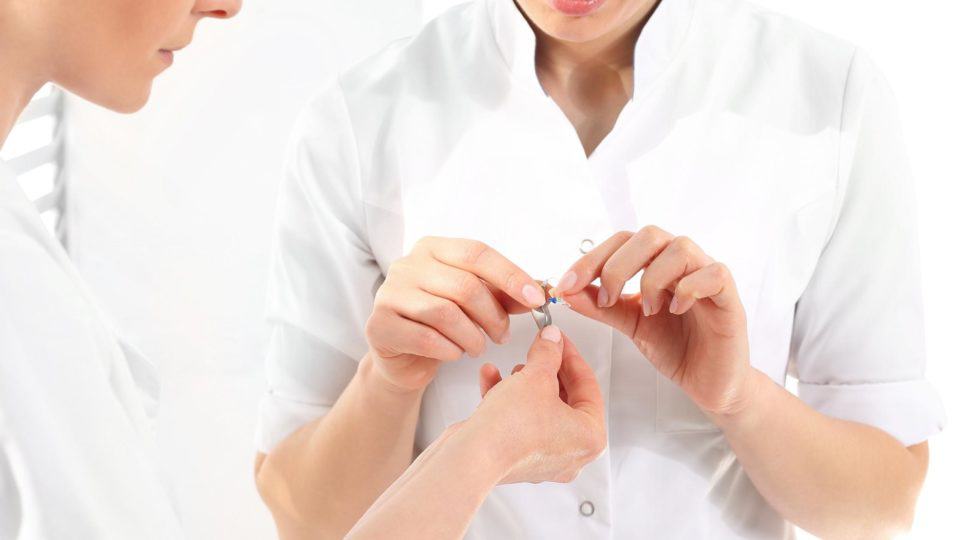- A Closer Look at Common Myths About Hearing Loss - May 7, 2024
- The Impact of Pets on Emotional and Hearing Health - April 26, 2024
- Strategies for Coping with Single-Sided Deafness - April 16, 2024
Facts about Hearing Loss
Hearing loss affects many more Americans than a lot of people may realize. You can not look at someone and know that they are dealing with it. And oftentimes it takes a while for those who are deaf or heard of hearing to understand the severity of their condition.
Just about three out of every thousand babies in the US are born with congenital hearing loss, but around 13% of the population deals with it to some degree. It can be the result of a sudden shocking blast or the long-term consequence of proximity to dangerous decibel levels. This proximity can be normalized through either recreational habits such as frequenting loud concerts or roaring sporting events, or it can be the accrued damage of a profession such as construction or factory work. And given that the damage happens so gradually, the change might be difficult to recognize.
Hearing loss affects a greater number of people as they age so much so that by the age of 75 and above, a full half of all people suffer from it. But deafness and hearing loss are not the same for everyone. Anyone might be subject to it and everyone will experience it differently according to their own unique circumstances. One of these lesser-known conditions is single-sided hearing loss.
What is Single-Sided Hearing Loss?
Single-sided deafness (SSD) is exactly what it sounds like: unilateral hearing loss in one ear while the other ear remains fully functioning. SSD affects 60,000 people each year in the US, but knowledge of it and its symptoms is low even within the medical community. SSD can happen at any time in someone’s life and unlike some more common forms of hearing loss it is most often irreversible. Most often the cause of SSD can be difficult to know for sure, but the most common causes include:
- Physical damage to the ear itself or its delicate inner workings
- A virus in the inner ear
- A bacterial infection in the inner ear
- A tumor in the ear
- A tumor in the brain
- A severe case of Meniere’s disease
- Meningitis, measles, or mumps
How are the consequences of SSD Different than Bilateral Hearing Loss?
Our equilibriums depend on the balance between our ears, so understandably SSD throws off your balance. This is obviously an incredibly frustrating condition to cope with. People with SSD also find it difficult to locate sounds within their environment. This of course makes otherwise simple activities difficult and possibly even dangerous. Imagine the increased struggle of navigating foot traffic on a bustling downtown street.
And beyond the immediate issue of orienting one’s self in space, SSD makes communication while background noise is present especially difficult. We rely heavily on consonant sounds in our speech communication, especially in loud environments. Consonant sounds are terse. This helps anchor meaning when someone har dog hearing is speedily filling in the blanks while they listen. But the terse quality of consonant sounds means that they have shorter wavelengths, which increases the likelihood that they will get muddled and lost before reaching the good ear. Imagine struggling with this while trying to communicate with large groups or sitting side by side with someone, such as in a car, and the fates have landed the good ear on the disadvantageous side.
It only makes sense that SSD often leads to irritability and nervousness. Stress headaches are a common result.
Prevention and Treatment
Though of course some preventions and treatments of SSD are quite similar to those of more common symmetrical hearing loss, they also differ in some meaningful ways. Our brains expect our hearing to be symmetrical and are hard-wired to decode hearing as such. Background noise is especially fatiguing when the asymmetry of SSD is an issue because the brain must invest extra energy into decoding which background noises to filter out. This is how a hearing aid or cochlear implant can help. Hearing loss is not like vision trouble. Hearing aids will help increase volume but it is not analogous to putting on glasses to return clarity to its normal amounts. But the hearing aid will greatly increase your ability to spatialize sound sources. And given the specific troubles that SSD causes, this improvement will be tremendous.
If you or someone you love suffers from SSD, make an appointment to see one of our specialists today. It will be important for you to fully disclose how long you have suffered. The audiologist will need to know how long your brain has adapted to the imbalance. If you can identify the cause that will be a great help. But whatever you know or do not know, it is imperative that you take action today.

